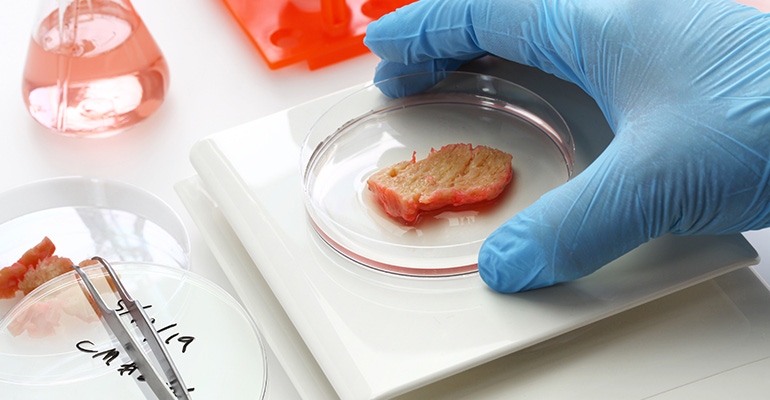Each day at 5 p.m. we collect the five top food and supplement headlines of the day, making it easy for you to catch up on today's most important natural products industry news.
September 8, 2020

Gen Z not ready to eat lab-grown meat, survey reveals
Gen Z, despite having some of the highest rates of concern for the environment and animal welfare, is apparently not ready to eat lab-grown meat. Experts believe that transparency around the sustainability benefits of in-vitro meat could help these products appeal emotionally and intellectually to this demographic. Read more at The University of Sydney…
COVID-19 has plunged more people of color into food insecurity
New research shows that Black and Hispanic households have been roughly twice as likely to experience food insecurity than white households during the pandemic. A surge in the unemployment rate, loss of subsidized school meals, increased food prices and delays in relief payments are all factors at play. Read more at The Counter…
Changing what we eat could offset years of climate-warming emissions
A large-scale switch to plant-based protein in place of meat and dairy could support ecosystems that absorb carbon dioxide, removing as much as nine to 16 years of global fossil fuel emissions. A co-author of the study notes that while a mechanism that can remove carbon from the atmosphere might be available soon, it would be unwise to rely solely on such technologies. Read more at NYU…
It is highly unlikely that food is a source of COVID-19 contamination, experts say
The International Commission on Microbiological Specifications for Foods (ICMSF), echoing statements from USDA made earlier in the year, have stated that there is no real risk of contracting COVID-19 from food or food packaging. The organization emphasized that the focus should be on protecting food workers, consumers and restaurant patrons from person-to-person infections of the virus. Read more at CNN…
Hard seltzer, once believed a fad, is showing no signs of fizzling
What's next for hard seltzer, the darling of sugar-conscious consumers nationwide? Varieties higher in alcohol content, creative marketing schemes, unique flavors and organic ingredients, to name a few. Read more at USA Today…
You May Also Like


